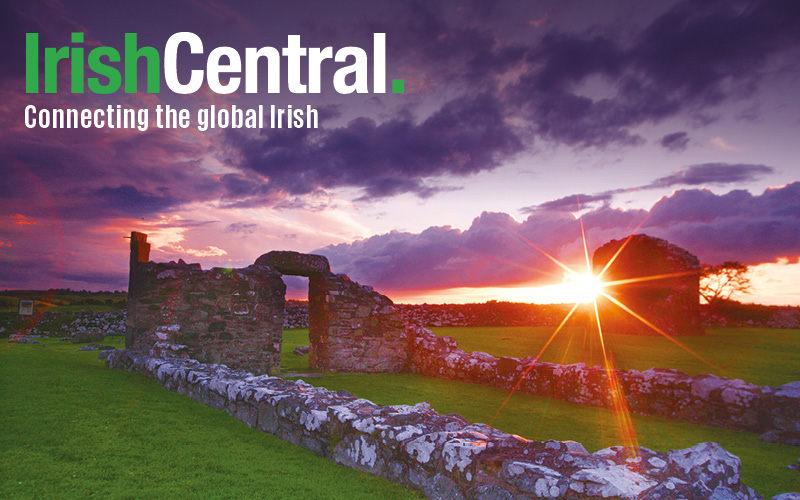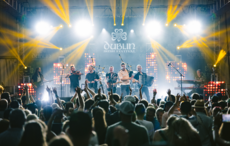For the month of March (also known as Irish American Heritage Month) IrishCentral is tapping into the heartbeat of the Irish American community. The Unsung Heroes series features inspiring individuals from across the US who do extraordinary work in their communities and respective fields. From advocates to artists, from local legends to dedicated educators; from a high school baseball team to dynamo nuns in their 80s, these people are making a difference and to them we tip our hats in thanks.
Imagine serving a life sentence - or sitting on death row - for a crime someone else committed and having no way to prove it.
While it’s impossible to say how many innocent people are currently incarcerated in North America, the number is probably larger than most people would like to think. But for a variety of reasons, from police corruption to mistaken identity to false confessions, the wrong people do end up behind bars. Once there, they and their families are often their sole advocates, a task that becomes harder and harder as the years go on.
Over the last three decades, 53 innocent people in the U.S. and Canada have been fortunate to also have Centurion Ministries (CM) on their sides. Founded by Jim McCloskey in 1983, Centurion Ministries, a non profit, takes on the cases of inmates they trust to be innocent and researches them top to bottom to uncover whatever errors of justice were made. Collectively, those 53 people served 1,080 years in prison for crimes they didn’t commit.
Some of the people CM has freed were serving life sentences, such as Joyce Ann Brown from Texas, who served nine years of a life sentence for robbery and murder just because she looked like the real perpetrator. Others have been on death row, such as Kerry Max Cook, also from Texas, who spent 20 years on death row for murder. CM worked on his case for seven years.
The team at CM has grown over the years to eight full time staff members – one of whom, Nick O’Connell, joined the team after CM helped free his father after 27 years in prison – and up to 25 volunteers who serve as case workers. But it started with McCloskey.
Born and raised in Havertown, PA, McCloskey comes from a big Irish family with roots Dungivan, Co. Derry, where his forebears ran a number taverns before immigrating to the U.S., to what are now the suburbs of Philadelphia, in the 1840s.
His grandfather and great-uncle founded the McCloskey Construction Company in Philadelphia, and that same great-uncle, Matthew, who was a major Democratic fundraiser in the 30s, 40s and 50s, was appointed by President Kennedy as the U.S. Ambassador to Ireland.
McCloskey himself graduated from Bucknell University in 1964 and served in the U.S, Navy as an officer in Japan and Vietnam. For 12 years after that he worked for management consulting firms, the last of which was the Hay Group in Philadelphia, where he consulted with Japanese companies expanding to America and also helped to develop Hay’s business in Japan.
By his mid-30s, McCloskey recently shared with IrishCentral, he began to feel that his life was “somehow inauthentic, lacking purpose. I lost passion for my place in the business world and at the same time my Christian faith was starting to take root. For the first time in my adult years I was going to church and I saw how my minister, Dick Streeter, at Paoli Presbyterian Church (all the other McCloskey’s are Catholic, but that’s another story in itself) touched the lives of so many people and the only thing I was touching was other people’s pocketbooks for the firm. I began to feel a calling to leave the business world and go into the ministry to become a pastor.”
He enrolled in Princeton Seminary to earn a master’s in divinity. While there, he volunteered to be a student chaplain at Trenton State Prison, where he met a man named Jorge De los Santos who was serving life in prison for the 1975 murder of a used car salesman in Newark, NJ. Convinced of De los Santos’ innocence, McCloskey took a year off from the seminary to work on his case.
With no legal background, he enlisted the expertise of a lawyer (who still sometimes works with CM today), but did most of the footwork himself. In the summer of 1983, De los Santos was exonerated and freed.
He returned to the seminary and finished his degree, but came to believe that his true calling was to work with people who were wrongly convicted. Thus began Centurion Ministries.
The process isn’t an easy one, nor is it fast. It can take as much as five years of review before CM will decide to take on a case, developing and closely analyzing its entire historical record from the trial phase through post-conviction hearings. Anyone who had a role in the conviction, from lawyers to witnesses, is interviewed. They also take a holistic view to the inmates themselves, looking into the lives they led before incarceration and what they have done with their time behind bars. They don’t meet in person CM are 99% sure they will take the case. It’s a long haul, but for McCloskey and the people CM exonerates, it’s undoubtedly worth it.
Even more importantly, CM’s dedication to the people they help free doesn’t end when they leave prison. CM provides help with the re-acclimating process, assisting with the search for a place to live, jobs, and other basic but vital resources. Nick O’Connell – whose father CM helped exonerate – is now leading this element of CM’s work, to which he can add invaluable insight having seen his dad, Frank, go through the same thing.
Having moved from California to New Jersey to be closer to Nick, Frank is slowly but surely getting back on his feet, working as the facility manager at a café in Manhattan. His story, and those of 52 other and counting, would have been very different had it not been for CM.
Watch Frank's first words upon being freed from prison:
* Originally published in 2014.




Comments